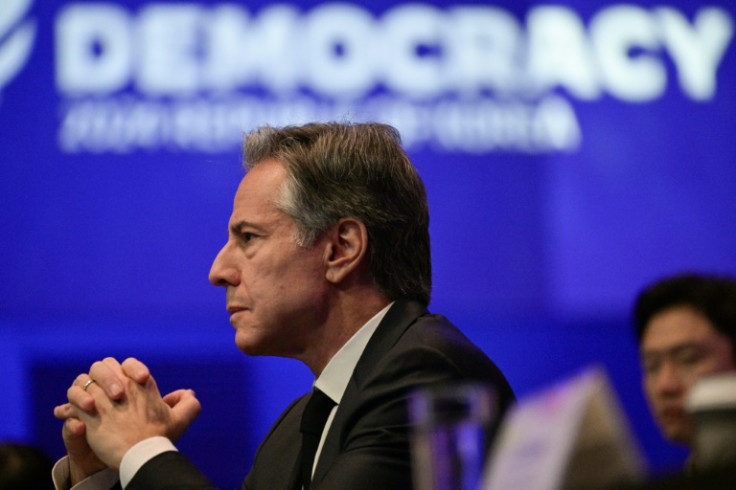
US Secretary of State Antony Blinken was heading on Thursday to Rome for talks with European counterparts on bringing stability to Syria in the face of flare-ups with Turkey, capping what is likely his final trip.
Blinken had been expected to remain in Italy through the weekend to join President Joe Biden but the outgoing US leader scrapped his trip, which was to include an audience with Pope Francis, to address wildfires sweeping Los Angeles.
Blinken, on a trip that has taken him to South Korea, Japan and France, was heading on Thursday from Paris and will meet for dinner in Rome with counterparts from Britain, France, Germany and Italy.
In Paris on Wednesday, Blinken said the United States was united with the Europeans on seeking a peaceful, stable Syria, a month after Islamist-led rebels toppled longtime ruler Bashar al-Assad.
But concerns have mounted over Turkey's threats against Syrian Kurdish fighters, who have effectively run their own state during the brutal civil war engulfing Syria.
A war monitor said that battles between Turkish-backed groups, supported by air strikes, and Kurdish-led forces killed 37 people on Thursday.
The Kurdish-led Syrian Democratic Forces (SDF) have worked with the United States on Washington's main stated priority -- battling the Islamic State extremist group -- but Turkey says the SDF has links with PKK militants at home.
Blinken in Paris said that Turkey had "legitimate concerns" and that the SDF should gradually be integrated into a revamped national army, with foreign fighters removed.
"That's a process that's going to take some time. And in the meantime, what is profoundly not in the interest of everything positive we see happening in Syria would be a conflict," Blinken told reporters.
"We'll work very hard to make sure that that doesn't happen."
Blinken said he expected no change on goals in Syria from US President-elect Donald Trump, who takes over on January 20.
During his last term, Trump briefly said he would accede to a plea by Turkish President Recep Tayyip Erdogan to pull out US troops that have been working in Syria with the Kurdish forces.
But he backed down after counter-appeals led by French President Emmanuel Macron.
Also on the agenda in Rome will be whether and when to ease sanctions on Syria.
French Foreign Minister Jean-Noel Barrot said on Wednesday that some sanctions "could be lifted quickly".
The US Treasury Department said this week it would ease enforcement on restrictions that affect essential services.
But US officials say they will wait to see progress before any wider easing of sanctions -- and the Biden administration is unlikely in its final days to accept the political costs of removing Syria's victorious Hayat Tahrir al-Sham rebels from the US "terrorism" blacklist.
While Western powers are largely in synch on Syria, some differences remain.
Blinken reiterated US calls on European countries to repatriate citizens of theirs detained in Syria for working with the Islamic State group and languishing in vast camps run by the Kurdish fighters.
France and Britain, with painful memories of attacks by homegrown Islamist extremists, have little desire to bring militants back.
The Rome talks come a week after the French and German foreign ministers, Jean-Noel Barrot and Annalena Baerbock, jointly visited Damascus and met new leader Ahmed al-Sharaa to encourage an inclusive transition.
Sharaa, who has roots in Al-Qaeda, has promised to protect minorities after the fall of the iron-fisted but largely secular Assad.
A senior US official in turn said last month on meeting Sharaa that Washington was dropping a $10-million bounty on his head.
Italian Foreign Minister Antonio Tajani will pay his own visit to Syria on Friday, during which he plans to announce an initial development aid package.
Italy's hard-right government has pledged to reduce immigration. Millions of Syrians sought asylum in Europe during the civil war, triggering a backlash in some parts of the continent that shook up European politics.
In contrast to other major European powers, Italy had moved to normalise ties with Assad just weeks before he fell, presuming at the time that he had effectively won the war.




